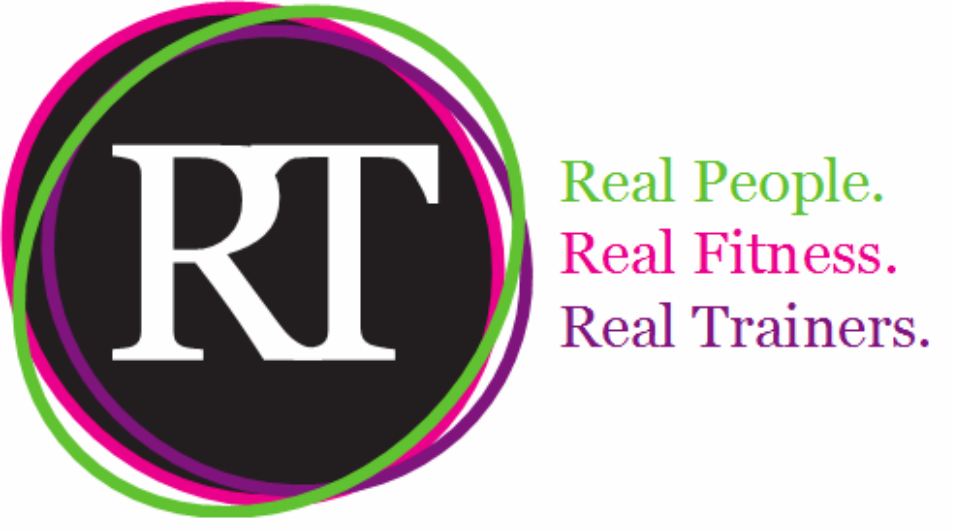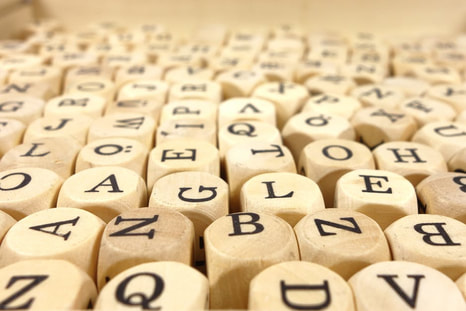|
Whenever we start a new project or task, there is always a first step. “Journey of a thousand miles,” and all that. I’ve written before about the importance of making a plan, but I also realize how hard it can be to make a plan when you aren’t sure what steps to take. I’ve especially noticed this with people who are trying to lose weight. For many, it’s an uncomfortable process. Especially when talking to someone else about it, and especially when you’re talking to someone you may not know very well, memories of past unsuccessful weight-loss attempts and reasons/excuses why the weight was put on in the first place can contribute to feelings of guilt, stress, and anxiety. With all of that going on, “Make a Plan” might not be the most helpful instruction you receive, even if it’s technically correct. I mentioned weight loss, but of course that isn’t the only reason people want to make changes to their diet. Some folks want to gain weight, and some don’t care at all about how much they weigh, they just want to eat better. No matter what your motivation, a good first step is to make a record of your current diet. This isn’t ground-breaking advice: you’ve likely heard of food journals, and maybe you’ve even seen printable templates online or checked out some diet tracking apps for your phone. The one thing that you may be missing is an answer to the question “Why (and how) should I do this?” Allow me to attempt to answer that for you by answering a series of questions I’ve heard from actual people. “This seems like a lot of work. Is it really necessary?” I’m not going to lie, it is an extra step in the process of preparing and eating food. It may even be 2 extra steps, depending on how you choose to record it. It’s an important step to take though, because it is extremely common for people to underestimate just how much they’re eating. This is why you’ve heard people say “I don’t know why I can’t lose weight, I don’t even eat that much!” I am not a betting man, but I would put money on the fact that they don’t actually know how much they eat in a day. Making effective changes to our diet can only be done once we know what our diet is, and keeping an honest, accurate food log is the best way to get this information. It may be helpful to know that you aren’t making a lifetime commitment to your food journal. If the plan is to make a series of small, sustainable, long-term changes to your diet (and I sincerely hope that it is), the day will come when that improved diet is just the way you eat. You won’t need to keep track of your eating habits because you’ll be more in touch with them than you are now. “So how do I do it?” Well, the method is up to you. Keeping a physical notebook works for some, while logging it into an online calorie counter like My Fitness Pal works better for others. Some people do both, though that’s 2 steps. You can keep track as you go throughout the day, you can record it in the evening before bed, or you can write it down in the morning and keep yourself locked in to what you plan on eating. If it works for you, and if you can keep it up over the next few weeks and months, then it’s the right way. “Ew, you mentioned calories, I don’t want to count calories.” Well you don’t have to if it’s really that important to you, especially not at first. It can be enough to see that you maybe aren’t eating as many vegetables as you thought (most of us aren’t), or that you’re eating more processed grains that you thought (most of us are). If the idea of digging into how many calories or grams of protein, sugar, and fat you eat seems too crazy for you, then don’t do it. Focus on the task of recording it, and take action on any obvious issues you see. At a certain point it may become helpful to know this information, but you’ll be well equipped to handle this step because you’ll be an all-star food-log keeper. I’d also like to mention that if you have an aversion to keeping track of calories, it may be a good idea to ask yourself why that is. Are you just being lazy? This excuse sucks, get over it and do the work you need to do to reach the goals you set. Are you just afraid of what you’ll find out? All the more reason to keep track. Are you worried that it will add stress to this whole process and make you less likely to keep up with keeping the journal? Then don’t worry about the calories for now, and focus on the journal like I mentioned above. Last, but most importantly, for some people who have dealt with an eating disorder or an unhealthy relationship with food/dieting, obsessing over calories or the number on the scale is not the way to move forward. That is not my area of expertise, and if you fall into this category it may be a good idea to speak with your doctor or therapist as you approach this task. A calorie is just a unit of measurement, and like the journal itself, calorie counting is one tool at our disposal. We can decide whether or not it is the right tool for the job. “Ok so I just write down what I eat?” Well, yeah, but there’s a bit more to it than that. You just write down EXACTLY what you eat. Here’s what I mean: If you have a sandwich for lunch you could write “sandwich,” but what does that tell us? Almost exactly nothing. What about “Ham sandwich?” A bit better, but how much ham? What kind of bread? Was there cheese on it? Any condiments? Did you only have the sandwich, or did you have a side as well? “Lunch – 3 slices of black forest ham on rye bread w/2 slices Swiss cheese & mustard. 1/2 bag BBQ chips, 1 can diet cola.” Now that’s an accurate entry, though I’ve deliberately omitted brand names, and they ought to be included when possible. As long as it’s honest, we’re in business. Estimating how much you’re eating can be tricky, so it’s a good idea to use measuring cups and even a scale for the first week or two, or at least until you get a good grasp of what “1 Cup Brown Rice” or “100g Chicken Breast” looks like. If measuring is too much work, here is a guide to help you make better guesses. For a really accurate picture of your diet, include what time you eat. Things like bored eating in the afternoon, overeating at dinner when lunch was too light/too early, and energy levels that fluctuate can all be revealed, explained, and addressed when we know when you’re eating. There is a lot to keep in mind, and it all needs to be specific to your situation, but the short answer to “how and why do I keep a food log?” is this: The first step towards making successful changes to your diet is to keep a detailed record of everything you eat over a given period, being as honest and accurate as possible.
1 Comment
The words we use can both reflect and have an effect on our mindset. As I’ve written before, my personal bugaboo is the word “should.” When we say that we “should” do something, we are not necessarily saying that we intend to do it. We have no plan, we may not know where to start, and we may even feel a bit guilty about it. It isn’t a useful way to feel, therefore it isn’t a useful word to use. I had an actual physical reaction to something I overheard the other day. I was sitting in a coffee shop and two people were chatting at a nearby table. One turned to the other and said, “I should go on a diet.” As if “should” wasn’t bad enough, along comes its old friend “diet.” Now that I’ve stopped cringing, allow me to explain why we should need to stop using this word, or at least why we should may want to rethink how we use it. “I’m on a diet.” “I’m making changes to my diet.” Those two statements are different in subtle but very important ways. The difference hinges on the interpretation of one little four-letter word, and just like with “should,” what we’re telling other people is far less important than what we’re saying to ourselves. So when we talk about being on A Diet, what do we mean? A Diet is short-term or temporary. It’s a knee-jerk reaction to a number on the scale or to pulling our jeans out of the closet only to have them feel a bit snug. It can also be a fad, meaning that it’s popular but not well-studied, and usually not based rigorous scientific evidence. This, of course, is only an issue if you actually want results, which we can assume you do if you’re committing to only eating cabbage or whatever it happens to be this month. In other cases, its a drastic attempt to fit into a dress by a certain date, or to look better on the beach than you did last year, even though your vacation is 6 weeks away. A Diet is the equivalent of cramming for a test. Did that work in school? If it did, how much of that information was retained long-term? A better strategy is to spend time with the material, really understanding each piece of information before moving on to the next. This is what we mean when we talk about making changes to Our Diet. Our Diet is simply what we eat. It can be recorded by keeping a food log. We can plan for it, or we can make last minute decisions. Whether we eat at home on the run, whether we’re vegetarian or omnivorous, whether we’re trying to lose weight, gain weight, or stay the same weight, whether or not we have any goal in mind at all, the food we eat and the way we eat it can be referred to by one simple label: Our Diet. This need for clarification is so frustrating to me I can’t even tell you. I truly wish there was a different word for one or both of those things, but here we are. “So are you just going to complain, or are you going to offer a suggestion?” As the old saying goes, “the best way to cure a headache is to cut off the head.” I think that’s the saying, anyway. The point is that we never need to clarify to each other or to ourselves what we mean by the word “diet” if we only use it to mean Our Diet. Taken a step further, we never need to talk about A Diet at all if we never go on A Diet again. Diets suck anyway, right? They don’t work, at least not in the long run, and they end up costing money, time, and effort that would be better spent on just about anything else. If you’re going to make the commitment to make changes to Your Diet, understand exactly what that means: sustainable, permanent, positive changes that move you closer to being the healthiest you you can be. If you find yourself saying and meaning the other thing, take a step back, reevaluate, and make a new plan. This is my second post about the meaning of words and using words to get ourselves into the right headspace, but I feel like I can’t stress it enough. There’s another one that I often hear besides “should” and “diet,” so rather than subjecting you another example in the future, I’ll do it right now. Instead of saying “I have to go for a run,” say “I get to go for a run!” I thought this was crazy when I first heard it, but think about it; you get to go for a run? That’s awesome! You get to spend an hour listening to music, challenging your body, and increasing your cardiovascular health. If you REALLY hate it, if it really isn’t for you, then don’t go. Find something else that works for you and never run again. If you’re just complaining, consider the idea that you get to go, and get going. Of course, this doesn’t just apply to running. You or someone you know has said this about lifting weights, swimming, going to a spin class or bootcamp, going for a walk, doing physiotherapy exercises, even doing meal prep or keeping a food journal. If you stop thinking of these things as chores you’ll be less likely to skip them, which means you’ll be more likely to get the results you want. If you’re having a hard time thinking of why you “get” to do something, I’ve got you covered: There are things in your life that you want to change, and you get to take control of them and change them. You have challenges and limitations, but you get to determine what they are and what you can do to overcome them. You get to start small, you get to work at your own pace, and you get to do something good for yourself. Talk to yourself the right way, get yourself into the right mindset, and see what a difference it makes. That’s the hard part. Once you have that figured out, all you have to do is get to work. |
AuthorRyan Casselman is a personal trainer, musician, and the founder of Real Trainers. Stay tuned as he finds out what he's going to write about each week or so! Archives
November 2017
Categories |
Proudly powered by Weebly



 RSS Feed
RSS Feed